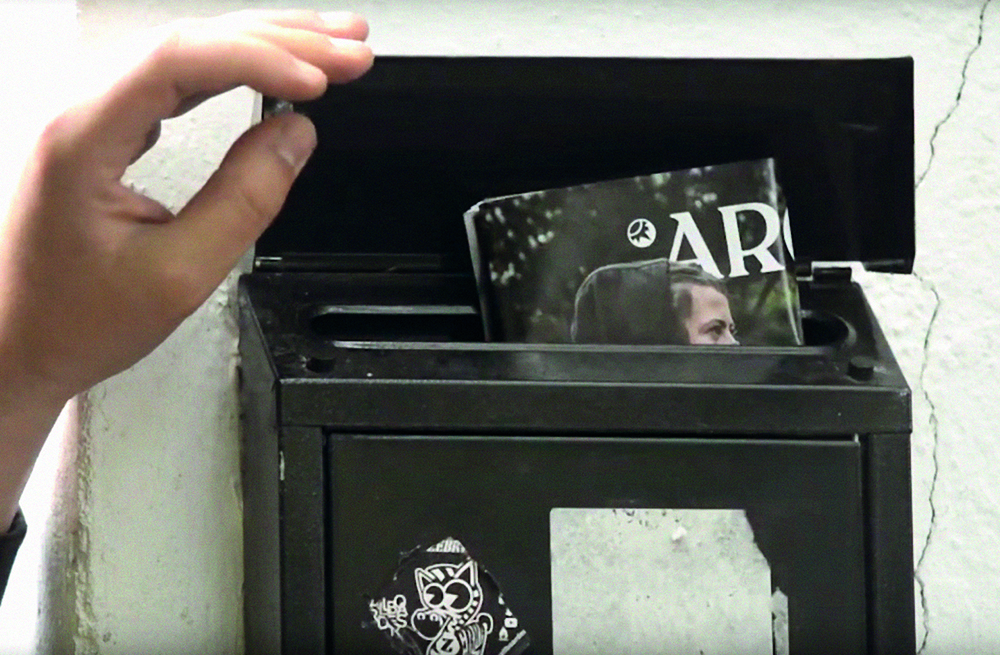How we've been robbed of time by getting into debt
- The Italian sociologist and philosopher Maurizio Lazzarato, resident in Paris, has just published La fabrique de l’homme endetté (The Origin of the Handful of Man). Le Monde Diplomatique has chosen some of its fragments in February, and we have put them here translated into Basque. Because it gives a special light to the great crisis, which, among other things, is that of debt.

The successive financial crises have led to the emergence of a subjective figure that today occupies the entire public space: the indebted man. The phenomenon of debt is not limited to the economic aspects. It is a key that limits social relations in a neoliberal regime, as it provokes a triple expropriation: it steals the political power that was previously weak, abandoned by representative democracy; it steals most of the wealth obtained by the old struggles, and above all, it steals the future, that is, the time it offers opportunities and alternatives.
Debtor relations increase the oppression and domination of capitalism. Debt ignores workers and the unemployed, consumers and producers, active and inactive, retired and residents with minimum social incomes. It establishes the same relationship of strength between all: persons who are too weak to access credit should also be involved in paying interest earned on public debt. Society as a whole is engaged, and this does not diminish, but it greatly increases the differences, which should be called “class differences”.
The crisis we are experiencing shows that one of the central themes of neoliberalism is property: the relationship between the creditor and the debtor is linked to the relationship of forces between the holders of capital and those who are not. The great fortunes go from debtors (most of society) to creditors (banks, pension funds, companies, wealthier families): with the accumulation of interest, the debt of developing countries has risen from $70 billion in 1970 to $3.54 billion today. And yet, during that time, those countries have paid one hundred and ten times more than they had to pay at first.
Debt, on the other hand, produces a very own morality, very different from the morality of work. The ideology of the work has established that the compensatory tact of the couple has been replaced by the morality of the promise (payment of the debt incurred) and guilt (acceptance of the debt).The German press campaign against the "Greek parasites" has shown the breadth of the logic of the
debt economy. It seems that the media, politicians and economists have only one message for Athens: “You have made a mistake,” “you are guilty.” In the end, the Greeks live in idleness lying in the sun while the German Protestants work in the fog and burning for the good of Europe and humanity. This and the issue of the unemployed who feed the provisions of state without hitting anyone, everything is one.
Debts versus freedom
The debt does not seem to show its strength either by repression or by ideology. But despite being “free”, the debtor has no choice but to pay the debt contracted for his activity and opportunity. You are free to the extent that they allow you to deal with the debts that you have your lifestyle (consumption, employment, social expenses, taxes, etc. ).
For example, in the United States, 80% of students who complete a master's degree earn a debt of 77.000 dollars if they have studied in a private university and 50,000 if they have studied in the public. Inside the Occupy Wall Street movement, a student states: “My study credit is $75,000. Soon I will not be able to pay for it. Our father who has accepted the guarantee will have to assume it. Then you will not be able to pay. I have sunk my family trying to get above my class.”
It is the same mechanism for one person and for the population. Shortly before his death in April 2001, former Irish finance minister Brian Lenihan stated: “Since I took office in May 2008, I realized that our difficulties, both those of our banks and those of our public finances, were so great that we did not and we had lost sovereignty.” In seeking assistance from the European Union and the International Monetary Fund, “Ireland relinquished its ability to decide its future manually”.
The ability of the creditor over the debtor leads us to the final definition that Michel Foucault gives about power: power gives the ability to maintain “being free”. The power of debt leaves you free, but it encourages you – right away! – from one way: to pay your debts (even if Europe and the IMF are going to condemn the debtor to the recession by imposing their economic policies).
But relations between creditors and debtors not only affect the current inhabitants. As debts do not increase taxation for those earning the most and for companies, i.e. against the logic of classes, debt management reaches future generations.
Capitalism puts its hand in the future when it forces governments to pay their debts. In this way, it manages to calculate, measure, establish, as today's behavior, tomorrow's behavior, that is, it organizes the bridge between the present and the morning. In this way, the capitalist system manages to ensure that tomorrow things will be as they are today, and that today’s power relations will be the same in the future. This strange feeling that we have today, in a society in which we live, without time, without possibilities, without possible breaks, what do the “indignados” denounce?, finds one of its main explanations in the indebtedness.
The relationship between time and debt has been known for centuries, between preparing money and stealing time. Although in the Middle Ages the distinction between usury and interests was not very clear, he realized that whoever lends money “steals” time to the debtor, and that in that he is wrong: he sells time, that is no one’s, that he has God as the sole owner.
If in industrial societies there was an “open” time – such as progress or revolution – today the future and its possibilities are blocked, trampled by the enormous fortunes that move finances and that seek to perpetuate capitalist relations of force. Because debt cancels the time, the time it can generate new opportunities, that is, the first theme of any political, social or aesthetic change.
Yes. The income declaration can be presented in Basque, both in the Autonomous Community of the Basque Country and in Nafarroa Garaia, as the UEMA (Commonwealth of Basque Municipalities) reminds us annually along with various public institutions and municipalities. In addition,... [+]
Like every year, at the end of April, we have the unavoidable obligation to present our tax return to the Hacienda Foral. And like every year, the Catholic Church, following its eternal line, refills with publicity on all sides to check the church's box. Thus, it would receive... [+]
The Araba, Bizkaia and Gipuzkoa Foral Haciendas have just extracted the data from the collection, and we have seen that they have received more money than ever before. They soon announce that they will take the necessary margin for reflection on tax reform, because there is no... [+]
The title of this article is Victor Hugor, a great French writer from the 19th century. The Christian writer was very clear that the Church and the State should be separated. Something similar is found in the Gospel of St. Matthew, 22,21: "Pay to Caesar what is of Caesar, and to... [+]






















